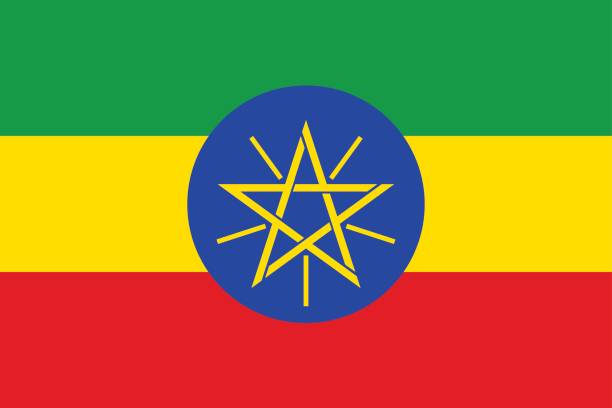Advancing African Agenda - ENA English
Advancing African Agenda

Advancing African Agenda
By Staff Writer
Addis Ababa, January 31, 2025 (ENA) Over the past three years, Ethiopia's diplomatic journey has been marked by significant milestones, solidifying its position as a key player in African and global affairs. Driven by a strategic vision focused on peace, security, and economic development, Ethiopia has strengthened its international presence and influence. The nation's evolving role in regional conflict resolution, fostering economic integration, and embracing technological advancements underscores its commitment to shaping Africa's future while amplifying its global standing.
Ethiopia's commitment to "African solutions to African problems" has evolved into a proactive and diplomatic approach. The efforts to resolve the northern Ethiopia conflict have not only contributed to regional stability but also elevated Ethiopia’s visibility on international stage on pressing issues of global concern which will be discussed below.
The Pretoria Peace Agreement which Ethiopia signed to end the northern Ethiopia conflict in 2022 has won international acclamation. The agreement paved the way for national reconciliation through the principle of African solutions to African problems.
Economic diplomacy is a cornerstone of Ethiopia's diplomatic strategy, focusing on attracting foreign direct investment (FDI). The country has collaborated with organizations like the World Bank and IMF to support Ethiopia’s macroeconomic reforms and growth initiatives. Its growing economy and investments in transportation and energy infrastructure are positioning Ethiopia as a vital hub for intra-African trade.
A major diplomatic milestone was Ethiopia's inclusion in the BRICS group of nations in 2024, a testament to its increasing economic and political influence. BRICS membership provides Ethiopia with access to new markets, technology transfer, and financing opportunities, further strengthening its global position. Prime Minister Abiy Ahmed emphasized the importance of BRICS for South-South cooperation and reforming multilateralism.
The country's global engagement extends beyond traditional partnerships. The country actively shapes global agendas on climate change, sustainable development, and global health, ensuring the African voice is heard in key global decision-making processes.
Ethiopia has almost completed its Grand Ethiopian Renaissance Dam (GERD). This project symbolizes the country’s self-reliance and is poised to double Ethiopia’s electricity generation capacity. GERD has huge contribution to regional power connectivity and integration.
Ethiopia has been exporting power to its neighbors, mainly Sudan, Djibouti and Kenya, to forge interconnectivity and help address critical development challenges. Ethiopia will soon begin exporting power to Tanzania, while even after the completion of the GERD; Ethiopia has sought to export large volumes of electricity to neighboring countries for mutual growth.
Another major success is Ethiopia’s attainment of wheat self-sufficiency in 2023, a direct result of the Prime Minister’s Wheat Initiative. This achievement transformed Ethiopia from a major wheat importer into an exporter, contributing to food security, laying a strong foundation for national food sovereignty and economic growth.
Ethiopians were able to plant over 25 billion saplings during the four years of the first round of Green Legacy Initiative launched in 2019. However, by the beginning of the second round year of the Initiative launched in 20124, Ethiopia has planted 32.5 billion saplings. This enables the country to regain its forest cover to 23.6 per cent in 2023. The initiative addressed environmental degradation while promoting food security and creating green jobs, further solidifying Ethiopia’s image as a responsible global actor committed to sustainability.
As the country continues to navigate complex geopolitical dynamics, its proactive and multifaceted approach positions it for sustained growth and influence in Africa and beyond. With a focus on sustainable development and fostering continental cooperation, Ethiopia is well on its way to solidifying its role as a key player in shaping the future of the continent.
The misunderstanding between Ethiopia and Somalia has been settled through the Ankara Agreement—which is an unprecedented development for the two fraternal nations and the horn region in general. Accordingly, the two neighboring nations agreed on wide range of issues that foster long-term cooperation in the Horn of Africa.
Ethiopia has been an ardent supporter of the African cause and champion of Pan-Africanism starting from colonial times. Ethiopia has also been known for contributing for the global peacekeeping missions. Ethiopia's participation in the UN authorized peace mission could also be counted as part of its unwavering stance on global common affairs and its conviction to the principle of promoting peace to all people regardless of borders.
Ethiopia’s diplomatic achievements reflect a long-term strategic vision focused on peace, stability, and sustainable growth. Ethiopia’s leadership in peace-building, economic integration, and global partnerships positions it for continued growth and an expanded role on both the African and global stages.
Most importantly, Ethiopia’s assertion about its natural and legitimate right to sea outlet has been welcomed by the international community. For a long time, raising the issue of sea outlets has been subdued even among Ethiopians. Given its growing population and economy, Ethiopia's lack of access to sea outlets for foreign trade is a major obstacle to the country's attempts to boost its exports and reap the benefits as desired.
Prime Minister Abiy Ahmed has made a bold call asserting that Ethiopia has offered for equitable and fair utilization of sea outlets, and the issue must put on table for peaceful dialogue and discussion. The premier’s call on Ethiopia’s rightful quest for sea outlets prompted many countries to accept the issue as Ethiopia’s position is based on win-win approach and peaceful means.
In conclusion, Ethiopia’s diplomatic ascent is a testament to its long-term vision and resilience. Through strategic investments in peace-building, economic diplomacy, and global partnerships, Ethiopia is not only addressing internal challenges but also asserting its leadership on the global stage.